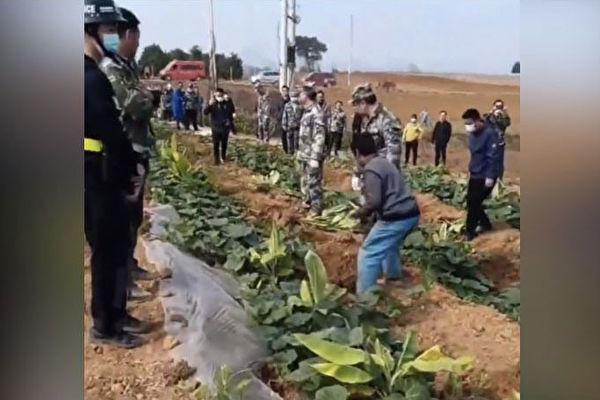A burgeoning movement to return forests to farmland and the sudden arrival of heavy-handed rural enforcers are at the center of recent dramatic events in China.
China is making a major push to expand its arable land. The movement reverses years of ecological “farmland to forest” policies and includes the establishment of a new “Rural Comprehensive Administrative Law Enforcement Brigade.” The agricultural management officers have quickly become unpopular for their thug-like tactics.




